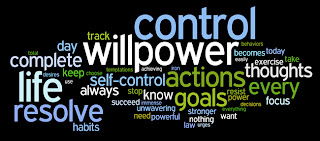Medical students are used to being at the bottom of the totem pole. However, there is 1 area in which they surpass residents and attending physicians: the art of communication.
Unfortunately, as you gain training and experience in medicine, your communication skills may worsen. Although there are obvious reasons why this occurs (eg, time constraints curtail communication), the trend can be stopped.
The ability to communicate well is not innate. Think of communication as another procedure you must learn in medical school, perhaps 1 of the most important in the long run -- given that most of what you do is talk to patients.
Research shows that the patients of physicians who communicate well are more adherent to therapies, more satisfied with care, and less likely to file malpractice suits.
[1-5] Just like you need to learn how to diagnose strep throat, you need to learn how to communicate effectively.
How well we learn communication depends on how it's taught. Few of us learn well when we sit in lecture halls and listen to didactic presentations. "And before you tell the patient the bad news, ask the patient what she knows first..." The main problem with this format is that none of the information is individualized to the learner. It is easy for the learner to see the technique and think, "I already do that, so I don't need to improve," or "I don't do that with my patients, so this is not relevant to me."
Because students do not individualize these techniques easily, few of them will walk away with "aha moments" and be ready to make changes in their communication behaviors.
The format for teaching communication needs to be interactive and individualized. What this means in concrete terms is getting feedback on communication. One way is through role-play. Role-play is unpopular because it is artificial and makes students feel vulnerable.
These downsides, though, also translate into positives. Because role-play is artificial, it doesn't harm patients. Although students feel vulnerable or uncomfortable, they are trying out new skills and getting feedback.
As long as good ground rules are set up before role-play (eg, everything that is said is confidential, be respectful of others), it can be quite effective. Role-play work best when the facilitator asks the student what technique he or she wants to work on. The facilitator then provides feedback on that technique but avoids giving more global comments or commenting on aspects of the role-play that are unrelated to the learner's goal.
The facilitator also keeps feedback as positive as possible, as we tend to learn better from positive than from negative feedback. (Think of us all as rats in a cage, pressing the lever for our food pellet. We like to be rewarded and do the things that get us rewarded.) In this context, learners can work on a specific communication technique, practice putting the technique in their own words, and have a positive learning experience.
Feedback can also be given in a more private way. Our research group at Duke University is developing programs that deliver feedback to doctors via Web-based platforms. We audio-record physicians' conversations with actual patients; write an intervention that addresses skills; create exemplar video clips to demonstrate the skills; and, most important, provide physicians with feedback from their own audio-recorded encounters.
In a study of oncologists, we found that those who received computer-based feedback were twice as likely to respond empathically to patient expressions of negative emotion than oncologists who did not receive the intervention.
[6] In addition, impressively, patients of oncologists who received the intervention reported higher levels of trust than the other patients.
This was the first study of its kind to have effects on both physicians and patients. The intervention took oncologists only 60 minutes to complete, and they could do it wherever it was convenient for them. The findings were similar to those after week-long training courses.
Although this method is somewhat labor-intensive because the audio-recorded conversations need to be coded, it is less labor-intensive than hiring facilitators to run role-play. What's more, learners have control over when they get their feedback, which is not true in a role-play environment. Thus, even though these methods are relatively different, they both contain the key critical element: feedback. This method could be used in medical schools to teach communication behaviors.
The take-away message is that effective communication is vital to practicing good medicine. One of the only ways to learn communication is to receive feedback. More medical schools are recognizing the importance of "bedside manner" and are teaching courses in communication. Hopefully, with this new focus, patient/physician communication will improve, patients will be healthier and happier, and physicians will find their work more rewarding.










